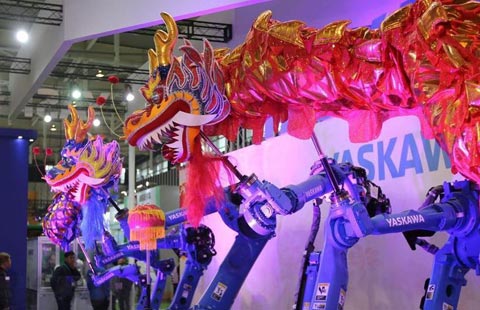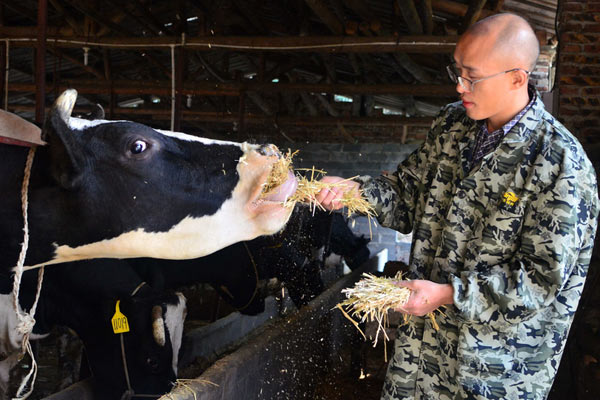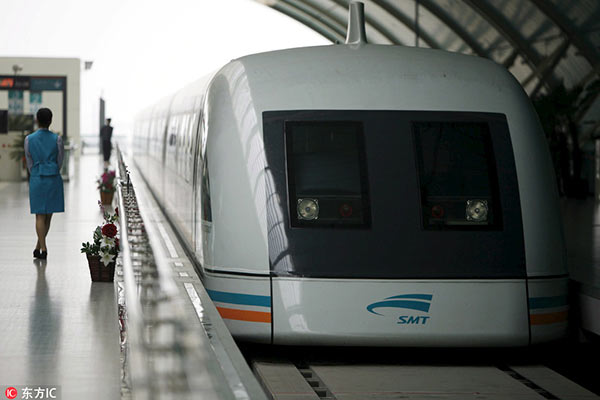Chinese enterprises help improve living standards of South Africans
PRETORIA - A report released Thursday shows that Chinese enterprises in South Africa are making positive contributions to the socio-economic well-being of the country.
According to the report on the development of Chinese enterprises in South Africa unveiled by the South Africa-China Economic and Trade Association, there are more than 300 Chinese companies including representative offices in South Africa and among them about 140 are large and medium-sized companies.
The Chinese companies have been involved in such fields as real estate, mining, automobiles, finance, construction, textile, logistics and household appliances, the report said.
By the end of 2015, Chinese investment in South Africa reached about $13 billion. The Chinese enterprises employed more than 26,000 people in South Africa, of whom 24,000 were locals, the report said.
"Over the years, the Chinese enterprises have devoted themselves to South Africa's economic and social development," Chinese Ambassador to South Africa Tian Xuejun said at a ceremony to launch the report.
The Chinese companies "have strictly abided by laws and regulations, maintained sound relations with local communities, earnestly fulfilled their social responsibilities and been actively engaged in the development of South Africa's education, health and social charity," Tian said.
Tian said despite the sluggish global economic growth, the Chinese enterprises are working hard to maintain investment and production, and keep jobs in South Africa.
The Chinese enterprises are now working with their South African partners to deepen cooperation in fields such as infrastructure construction, development of special economic zones and industrial parks, equipment manufacturing, industrial capacity, marine economy, exploration of energy resources, and finance, Tian said.
"Both sides are energetically pushing forward the reindustrialization and the social and economic transformation of South Africa. Those efforts once again prove that the Chinese enterprises have taken roots in the Rainbow Nation and their future has been closely connected with South Africa and its people," he added.
The report shows that Chinese investment has improved the living standards of South Africans by improving the level of science and technology, the development of local economies and job opportunities.
Mogokare Richard Seleke, director-general of South Africa's Department of Public Enterprises, said the report is a fair assessment of the South African environment.
While promising to address the concerns and challenges the Chinese enterprises face in South Africa, Seleke urged them to consider investing in rural areas, saying that "there are untapped opportunities in the countryside."
Cheng Jun, chairman of the South Africa-China Economic and Trade Association and CEO of the Bank of China in Johannesburg, said that the Chinese enterprises have integrated themselves well with local communities and improved people's livelihood.
"While the Chinese enterprises continue to grow and develop, they have faced a series of social and economic challenges such as security risk, legal risk, labor risk, operational risk and exchange rate risk," Cheng said.
Aptserv Consulting Chairman Michael Paketh, who has worked with China's Sinosteel in South Africa, Cote d'Ivoire and Ghana, told Xinhua that the Chinese enterprises are doing a good job in Africa.
Paketh said the Chinese are honest and friendly, and have high standards of business ethics. "They are good partners. They have given Africa opportunities for development ... They focus on business and do not interfere in the politics of other countries and I respect them for that."
Chinese official data shows that bilateral trade between China and South Africa exceeded $46 billion in 2015.
The South Africa-China Economic and Trade Association, established in 2011, is a non-governmental organization launched by Chinese enterprises and some companies owned by ethnic Chinese in South Africa, with more than 120 members.

















